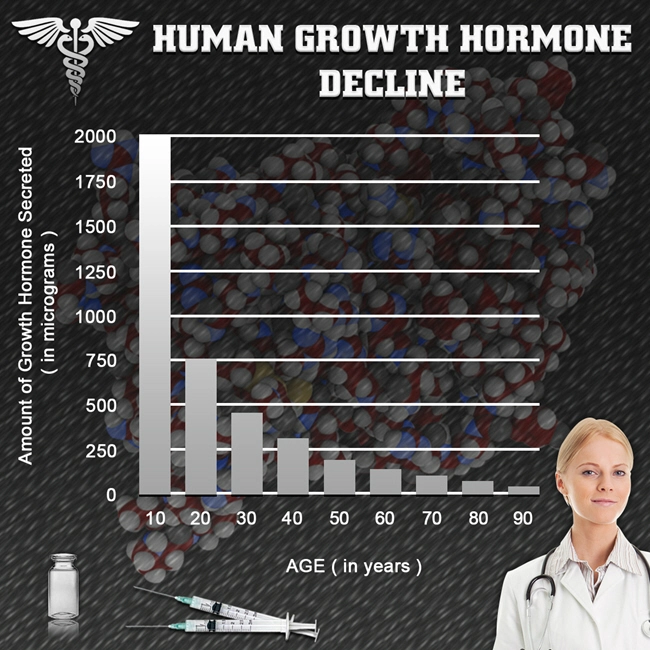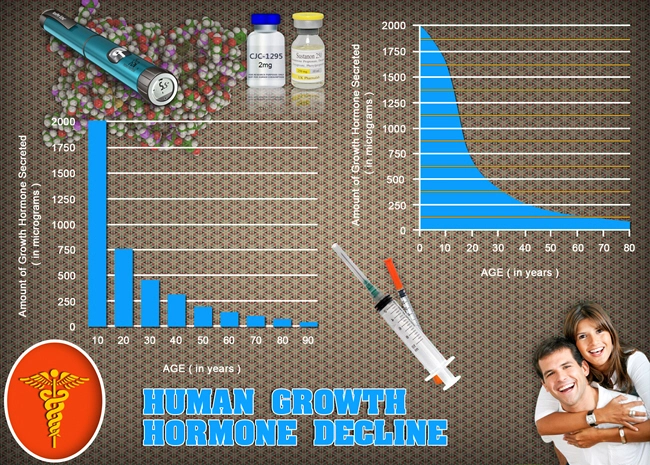
Introduction to Hypopituitarism and Seizure Disorders
Hypopituitarism, a condition characterized by the diminished secretion of one or more of the eight hormones normally produced by the pituitary gland, can have profound effects on the body's overall function. Among the myriad of symptoms and complications, there is a notable association with seizure disorders, particularly in American males. This article delves into the neurological link between hypopituitarism and seizures, exploring the underlying mechanisms and the implications for diagnosis and treatment.
Understanding Hypopituitarism
The pituitary gland, often referred to as the "master gland," plays a crucial role in regulating various bodily functions through hormone secretion. Hypopituitarism occurs when the pituitary gland fails to produce sufficient hormones, leading to a cascade of systemic effects. Common causes include tumors, head injuries, radiation therapy, and autoimmune conditions. Symptoms can range from fatigue and weakness to more severe manifestations such as infertility and growth disorders.
The Prevalence of Seizure Disorders
Seizure disorders, or epilepsy, affect approximately 3.4 million Americans, with a significant portion being male. Seizures are the result of abnormal electrical activity in the brain, which can manifest as convulsions, loss of consciousness, or altered behavior. The etiology of seizures is diverse, encompassing genetic factors, brain injuries, infections, and metabolic imbalances.
The Neurological Link Between Hypopituitarism and Seizures
Research has indicated a complex interplay between hypopituitarism and seizure disorders. One of the primary mechanisms involves the disruption of hormonal balance, particularly the deficiency of growth hormone and cortisol, which are known to influence brain function and stability. Additionally, structural changes in the brain, such as those caused by pituitary tumors, can directly contribute to the onset of seizures.
In American males, the prevalence of hypopituitarism-related seizures may be influenced by lifestyle factors, such as stress and sleep patterns, which can exacerbate hormonal imbalances. Furthermore, the psychological impact of living with a chronic condition like hypopituitarism can increase the risk of seizures, as stress is a known trigger for epileptic episodes.
Diagnosis and Management
Diagnosing the link between hypopituitarism and seizures requires a comprehensive approach. Physicians must conduct thorough hormonal assessments and neurological evaluations to identify the underlying causes of seizures. Imaging studies, such as MRI scans, can reveal structural abnormalities in the brain that may be contributing to the condition.
Management of hypopituitarism-related seizures involves a multifaceted strategy. Hormone replacement therapy is often the first line of treatment to restore hormonal balance and mitigate the risk of seizures. Antiepileptic medications may be prescribed to control seizure activity, and lifestyle modifications, such as stress management and adequate sleep, are crucial for overall well-being.
Implications for American Males
For American males, understanding the connection between hypopituitarism and seizure disorders is essential for timely diagnosis and effective management. Given the potential impact on quality of life, it is imperative for individuals to seek medical attention if they experience symptoms suggestive of either condition. Early intervention can significantly improve outcomes and reduce the risk of complications.
Conclusion
The neurological link between hypopituitarism and seizure disorders in American males underscores the importance of a holistic approach to healthcare. By recognizing the intricate relationship between hormonal imbalances and brain function, healthcare providers can offer targeted treatments that address both the root cause and the symptoms of these conditions. As research continues to evolve, the hope is to further elucidate the mechanisms at play and develop more effective strategies for managing hypopituitarism and its associated seizure disorders.
Contact Us Today For A Free Consultation
Dear Patient,
Once you have completing the above contact form, for security purposes and confirmation, please confirm your information by calling us.
Please call now: 1-800-380-5339.
Welcoming You To Our Clinic, Professor Tom Henderson.

- Hypopituitarism and Cardiovascular Health: Unraveling the Intricate Links in American Males [Last Updated On: February 25th, 2025] [Originally Added On: February 25th, 2025]
- Hypopituitarism and Metabolic Syndrome in American Males: An Emerging Health Crisis [Last Updated On: March 5th, 2025] [Originally Added On: March 5th, 2025]
- American Males' Experiences with Hypopituitarism: Challenges and Coping Strategies [Last Updated On: March 8th, 2025] [Originally Added On: March 8th, 2025]
- Unveiling the Cardiovascular Risks: Hypopituitarism and Heart Disease in American Males [Last Updated On: March 16th, 2025] [Originally Added On: March 16th, 2025]
- Unraveling the Connection: Hypopituitarism and Uterine Fibroids in American Males [Last Updated On: March 16th, 2025] [Originally Added On: March 16th, 2025]
- Understanding Hypopituitarism and Its Impact on Male Reproductive Health [Last Updated On: March 16th, 2025] [Originally Added On: March 16th, 2025]
- Unraveling the Hormonal Nexus: Hypopituitarism and Its Implications for Breast Cancer in American Males [Last Updated On: March 16th, 2025] [Originally Added On: March 16th, 2025]
- Hypopituitarism and Autoimmune Disorders: Insights and Management in American Males [Last Updated On: March 16th, 2025] [Originally Added On: March 16th, 2025]
- Hypopituitarism's Cognitive Impact on American Males: Memory, Attention, and Executive Function [Last Updated On: March 17th, 2025] [Originally Added On: March 17th, 2025]
- Hypopituitarism and Obesity in American Males: Hormonal Impacts and Management Strategies [Last Updated On: March 17th, 2025] [Originally Added On: March 17th, 2025]
- Hypopituitarism's Impact on Sleep in American Men: Hormonal Imbalances and Treatment [Last Updated On: March 17th, 2025] [Originally Added On: March 17th, 2025]
- Hypopituitarism in Aging American Males: Symptoms, Diagnosis, and Management Strategies [Last Updated On: March 18th, 2025] [Originally Added On: March 18th, 2025]
- Hypopituitarism and Cancer Risk in American Males: Monitoring and Management Strategies [Last Updated On: March 18th, 2025] [Originally Added On: March 18th, 2025]
- Hypopituitarism and Pituitary Tumors: Surgical Treatment and Outcomes in American Males [Last Updated On: March 19th, 2025] [Originally Added On: March 19th, 2025]
- Hypopituitarism in American Males: Impacts and Management of Mental Health [Last Updated On: March 19th, 2025] [Originally Added On: March 19th, 2025]
- Multidisciplinary Care Essential for Managing Hypopituitarism in American Males [Last Updated On: March 19th, 2025] [Originally Added On: March 19th, 2025]
- Hypopituitarism in American Males: Hormonal Impact on Skin Health and Management Strategies [Last Updated On: March 19th, 2025] [Originally Added On: March 19th, 2025]
- Hypopituitarism and Anemia in American Males: The Role of Erythropoietin Deficiency [Last Updated On: March 20th, 2025] [Originally Added On: March 20th, 2025]
- Hypopituitarism's Impact on Kidney Function in American Males: Monitoring and Management [Last Updated On: March 21st, 2025] [Originally Added On: March 21st, 2025]
- Hypopituitarism in American Males: Hormonal Imbalances and Joint Health Impacts [Last Updated On: March 22nd, 2025] [Originally Added On: March 22nd, 2025]
- Hypopituitarism and Hearing Loss: Exploring Links in American Males [Last Updated On: March 23rd, 2025] [Originally Added On: March 23rd, 2025]
- Hypopituitarism and CFS Overlap: Implications for American Males' Diagnosis and Management [Last Updated On: March 23rd, 2025] [Originally Added On: March 23rd, 2025]
- Hypopituitarism and Migraines in American Males: Hormonal Links and Treatment Strategies [Last Updated On: March 23rd, 2025] [Originally Added On: March 23rd, 2025]
- Hypopituitarism's Impact on Liver Health in American Males: Risks and Management [Last Updated On: March 23rd, 2025] [Originally Added On: March 23rd, 2025]
- Hypopituitarism in American Males: Impacts on Eye Health and Vision [Last Updated On: March 23rd, 2025] [Originally Added On: March 23rd, 2025]
- Hypopituitarism's Impact on Asthma in American Males: Hormonal Insights and Management [Last Updated On: March 23rd, 2025] [Originally Added On: March 23rd, 2025]
- Hypopituitarism's Role in Alzheimer's: Hormonal Imbalances and Cognitive Decline [Last Updated On: March 23rd, 2025] [Originally Added On: March 23rd, 2025]
- Hypopituitarism's Impact on Gastrointestinal Health in American Males: Diagnosis and Management [Last Updated On: March 24th, 2025] [Originally Added On: March 24th, 2025]
- Hypopituitarism's Impact on Muscle Strength in American Males: Diagnosis and Management [Last Updated On: March 24th, 2025] [Originally Added On: March 24th, 2025]
- Hypopituitarism and Hair Loss in American Males: Causes, Impacts, and Emerging Treatments [Last Updated On: March 24th, 2025] [Originally Added On: March 24th, 2025]
- Hypopituitarism's Impact on Osteoarthritis in American Males: A Comprehensive Analysis [Last Updated On: March 24th, 2025] [Originally Added On: March 24th, 2025]
- Hypopituitarism and Lupus Link in American Males: Diagnostic and Treatment Challenges [Last Updated On: March 24th, 2025] [Originally Added On: March 24th, 2025]
- Hypopituitarism and CKD: Pathophysiology, Monitoring, and Management in American Males [Last Updated On: March 25th, 2025] [Originally Added On: March 25th, 2025]
- Hypopituitarism in American Males: Impacts on Immune System and Management Strategies [Last Updated On: March 25th, 2025] [Originally Added On: March 25th, 2025]
- Hypopituitarism and Gout Link: Uric Acid's Role in American Males [Last Updated On: March 25th, 2025] [Originally Added On: March 25th, 2025]
- Hypopituitarism and Gallbladder Disease: Exploring Links in American Males [Last Updated On: March 25th, 2025] [Originally Added On: March 25th, 2025]
- Hypopituitarism and Liver Cirrhosis: Impacts and Management in American Males [Last Updated On: March 25th, 2025] [Originally Added On: March 25th, 2025]
- Hypopituitarism and Sjögren's Syndrome: Impacts on Exocrine Glands in American Males [Last Updated On: March 26th, 2025] [Originally Added On: March 26th, 2025]
- Exploring Hypopituitarism and MS Connection in American Males: Diagnosis and Treatment Implications [Last Updated On: March 26th, 2025] [Originally Added On: March 26th, 2025]
- Hypopituitarism and Parkinson's: Neurodegenerative Impacts on American Males [Last Updated On: March 26th, 2025] [Originally Added On: March 26th, 2025]
- Hypopituitarism and Heart Disease Risks in American Males: Diagnosis, Management, and Prevention [Last Updated On: March 26th, 2025] [Originally Added On: March 26th, 2025]
- Hypopituitarism's Impact on Pancreatitis: Risks and Management for American Males [Last Updated On: March 26th, 2025] [Originally Added On: March 26th, 2025]
- Hypopituitarism and Allergies in American Men: Exploring Hormonal and Immune Links [Last Updated On: March 27th, 2025] [Originally Added On: March 27th, 2025]
- Hypopituitarism in American Males: Stroke Risk and Hormonal Management Strategies [Last Updated On: March 27th, 2025] [Originally Added On: March 27th, 2025]
- Hypopituitarism and Fibromyalgia: Overlapping Symptoms and Diagnostic Challenges in American Males [Last Updated On: March 27th, 2025] [Originally Added On: March 27th, 2025]
- Hypopituitarism and Hypertension: Impacts on Blood Pressure in American Males [Last Updated On: March 27th, 2025] [Originally Added On: March 27th, 2025]
- Hypopituitarism's Link to Ovarian Cancer: Implications for American Male Health [Last Updated On: March 27th, 2025] [Originally Added On: March 27th, 2025]
- Autoimmune Link Between Hypopituitarism and RA in American Males: Clinical Insights [Last Updated On: March 27th, 2025] [Originally Added On: March 27th, 2025]
- Hypopituitarism and Prostate Cancer: Understanding and Managing the Interplay in Men's Health [Last Updated On: March 27th, 2025] [Originally Added On: March 27th, 2025]
- Hypopituitarism and IBD in American Males: Clinical Insights and Management Strategies [Last Updated On: March 28th, 2025] [Originally Added On: March 28th, 2025]
- Hypopituitarism and Diabetes Mellitus: Impacts on Glucose Metabolism in American Males [Last Updated On: March 28th, 2025] [Originally Added On: March 28th, 2025]
- Hypopituitarism and Lipid Disorders in American Males: Risks and Management Strategies [Last Updated On: March 28th, 2025] [Originally Added On: March 28th, 2025]
- Endocrine Disorders in American Males: Hypopituitarism and Adrenal Cancer Link Explored [Last Updated On: March 28th, 2025] [Originally Added On: March 28th, 2025]
- Autoimmune Link Between Hypopituitarism and Celiac Disease in American Males [Last Updated On: March 29th, 2025] [Originally Added On: March 29th, 2025]
- Hypopituitarism and Breast Cancer Link in American Males: Hormonal Insights and Clinical Implications [Last Updated On: March 29th, 2025] [Originally Added On: March 29th, 2025]
- Hypopituitarism and Pituitary Cancer: Impact, Detection, and Management in American Males [Last Updated On: March 29th, 2025] [Originally Added On: March 29th, 2025]
- Hormonal Imbalances Linking Hypopituitarism and Thyroid Cancer in American Males [Last Updated On: March 30th, 2025] [Originally Added On: March 30th, 2025]
- Hypopituitarism and Benign Tumors in American Males: Exploring Gynecological Links [Last Updated On: April 2nd, 2025] [Originally Added On: April 2nd, 2025]
- Hypopituitarism and Testicular Cancer: Impacts on Male Fertility and Management Strategies [Last Updated On: April 2nd, 2025] [Originally Added On: April 2nd, 2025]
- Hormonal Links Between Hypopituitarism and Endometriosis in American Males: Diagnosis and Treatment [Last Updated On: April 3rd, 2025] [Originally Added On: April 3rd, 2025]
- Hypopituitarism: Impact on Female Reproductive and Vaginal Health Management [Last Updated On: April 5th, 2025] [Originally Added On: April 5th, 2025]
- Hypopituitarism and PCOS: Impacts, Diagnosis, and Integrated Management Strategies [Last Updated On: April 5th, 2025] [Originally Added On: April 5th, 2025]
- Hypopituitarism's Impact on Male Sexual Health and Erectile Dysfunction [Last Updated On: April 5th, 2025] [Originally Added On: April 5th, 2025]
- Hypopituitarism and Premature Ejaculation: Hormonal Links and Treatment Strategies in American Males [Last Updated On: April 5th, 2025] [Originally Added On: April 5th, 2025]
- Hypopituitarism's Impact on Penile Health and Male Reproductive Function [Last Updated On: April 6th, 2025] [Originally Added On: April 6th, 2025]
- Exploring Metabolic Links: Hypopituitarism and Gestational Diabetes in American Males [Last Updated On: April 8th, 2025] [Originally Added On: April 8th, 2025]
- Hypopituitarism in Males: Exploring Links to Miscarriage and Fertility Issues [Last Updated On: April 8th, 2025] [Originally Added On: April 8th, 2025]
- Hypopituitarism and Cervical Cancer: Hormonal Monitoring in American Males [Last Updated On: April 9th, 2025] [Originally Added On: April 9th, 2025]
- Hypopituitarism's Impact on Lactation in American Males: Challenges and Management [Last Updated On: April 11th, 2025] [Originally Added On: April 11th, 2025]
- Hypopituitarism and Postpartum Depression: Impacts on Mental Health in American Males [Last Updated On: April 11th, 2025] [Originally Added On: April 11th, 2025]
- Hypopituitarism and Preeclampsia: The Critical Role of Hormonal Monitoring in Pregnancy [Last Updated On: April 12th, 2025] [Originally Added On: April 12th, 2025]
- Hypopituitarism and Ectopic Pregnancy: Impacts and Management in Women's Health [Last Updated On: April 12th, 2025] [Originally Added On: April 12th, 2025]
- Hypopituitarism's Impact on Male Fertility: Symptoms, Diagnosis, and Treatment Options [Last Updated On: April 13th, 2025] [Originally Added On: April 13th, 2025]
- Hypopituitarism in American Males: Impact on Acne and Skin Health Management [Last Updated On: April 15th, 2025] [Originally Added On: April 15th, 2025]
- Hypopituitarism and Alopecia in American Males: Causes, Impacts, and Treatment Options [Last Updated On: April 15th, 2025] [Originally Added On: April 15th, 2025]
- Hypopituitarism and Andropause: Impacts and Management in Aging American Men [Last Updated On: April 17th, 2025] [Originally Added On: April 17th, 2025]
- Hypopituitarism and Hirsutism in American Males: Hormonal Links and Management Strategies [Last Updated On: April 18th, 2025] [Originally Added On: April 18th, 2025]
- Hypopituitarism's Impact on Menopause: Hormonal Imbalances and Management Strategies [Last Updated On: April 18th, 2025] [Originally Added On: April 18th, 2025]









